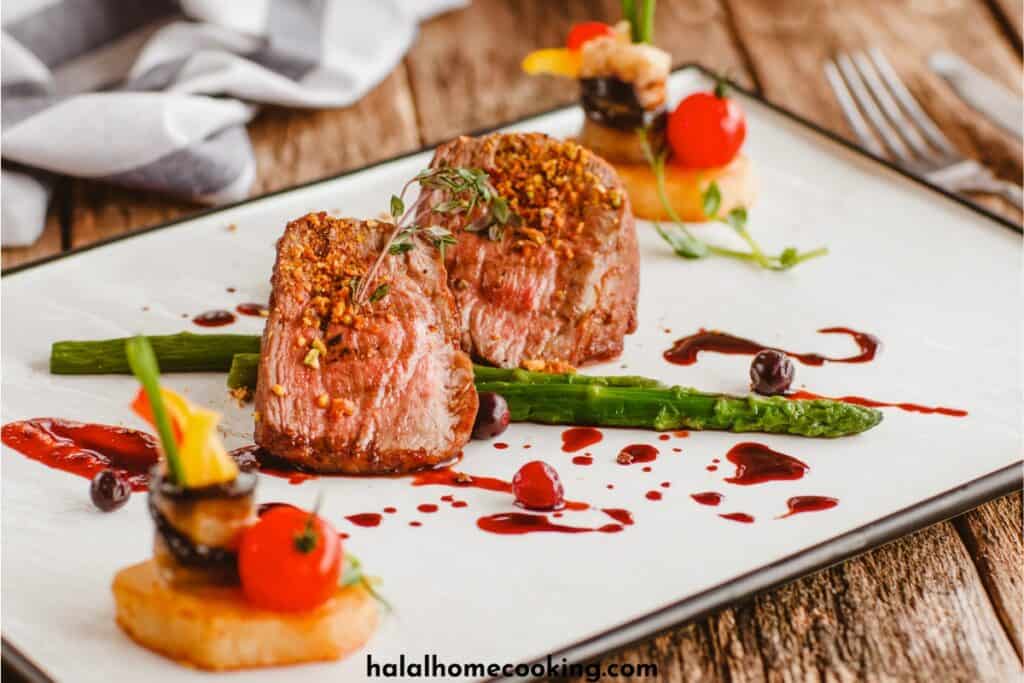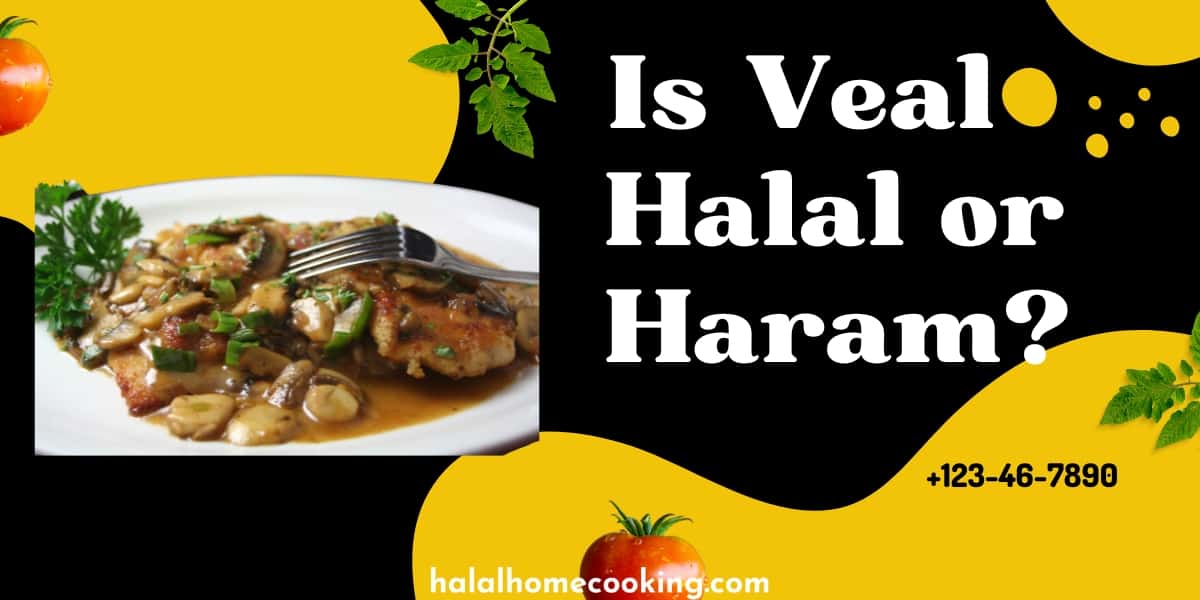In the world of halal food, one question that often arises is whether veal can be considered halal or not. Veal, which refers to the meat of young calves, has been a subject of debate among Muslims due to several factors. As with any meat product, the key consideration lies in how it is raised and slaughtered.
Halal refers to anything that is permissible in Islamic law and extends beyond mere dietary restrictions. When it comes to meat consumption, halal guidelines require that animals are cared for and slaughtered in a specific manner. Slaughter must be performed by a Muslim who utters the name of Allah at the time of slaughter while following certain necessary practices.
While beef from adult cows is generally accepted as halal without question, veal poses some additional complexities. The age at which calves are slaughtered for veal can vary significantly; some still rely on receiving milk from their dams (mothers) or consume grains that may contain non-halal elements such as pork protein or alcohol-derived additives used in animal feed.
Furthermore, traditional methods used before modern farming practices involved pre-slaughter physical conditions like immobility or controlled diet choices for achieving tenderness were considered questionable under proper halal guidelines as they did not prioritize animal welfare standards.
However, many contemporary farms now adhere to strict protocols designed specifically for producing compliantly sourced veals respecting spiritual beliefs while ensuring optimal nutrition value and delectable flavor profiles. Introducing regulated diets devoid of prohibited ingredients like pork components based on superior grain feed options has expanded the availability of halal veal.

Is Veal Halal in Sunni?
In Sunni Islam, the permissibility of consuming veal would depend on how the veal was obtained and whether it meets the criteria for halal (permissible) meat. To be considered halal, animals must be slaughtered according to specific Islamic guidelines. The animal should be healthy and alive at the time of slaughter, a Muslim should recite “Bismillah” (in the name of Allah), and blood needs to be fully drained from the carcass. If these conditions are met, then veal can be considered halal in Sunni Islam. However, individuals need to ensure that they are sourcing their meat from reputable and trustworthy suppliers who follow proper Islamic slaughtering practices.
Is Veal Halal in Shia?
In Shia Islam, there is some debate regarding the permissibility of consuming veal. Some scholars argue that it is halal (permissible) as long as the animal has been slaughtered according to Islamic guidelines and its meat does not come from an animal that died naturally or was not properly slaughtered. However, other scholars believe that consuming veal, which involves the slaughter of young calves, is makruh (discouraged) due to ethical concerns. Ultimately, it depends on one’s interpretation and adherence to their specific jurisprudential school within Shia Islam.
Is Veal Halal in Hanafi?
In the Hanafi school of thought, veal meat is considered halal (permissible) as long as certain conditions are met. Firstly, the animal should be slaughtered according to Islamic guidelines, which include cutting the jugular vein and windpipe with a sharp object while reciting Allah’s name. Additionally, the animal must be alive at the time of slaughter and should have been raised in a permissible manner, such as not being fed haram (forbidden) substances or being treated cruelly. It is worth noting that there may be some differences in opinion among scholars regarding specific details or interpretations related to this topic.

